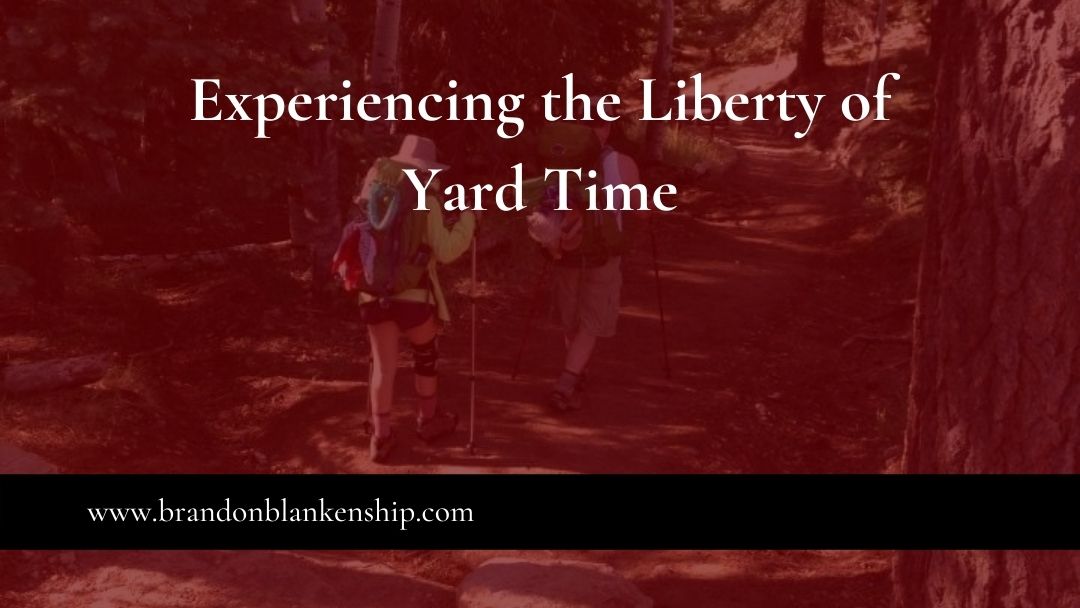If you are on death row in an Alabama prison, you are scheduled to get an hour a day of yard time. That is, time outside. You are scheduled to get an hour of yard time, but you don’t always get it. You get it unless it storms. You get it unless the prison is short-handed on corrections officers. You get it unless….
I learned about yard time from visiting prisoners. I didn’t understand it until Anthony Ray Hinton explained it.1 He described two types of liberty in prison. One was the trips he would take in his imagination. The other was yard time.
Hinton’s imagination reminded me of William Stringfellow’s statement that true freedom was Daniel Berrigan in prison. I can imagine Berrigan in the cell, eyes closed, boisterous smile. His body is there, but he is not. The truly imprisoned were the correctional officers, the warden – worried, fretting that Berrigan, like Paul, might disappear on their watch. But that is writing for another day.
Then there is yard time. Strange how fences and armed guards border Hinton’s liberty but it was liberty just the same. Not bounded by steel and concrete. A little room to walk. Fresh air to clear his lungs of prison stench. The sun. And the vastness of the sky.
After meeting Hinton, I started thinking about the fact that I could walk outside any time. But I didn’t. In fact, there were many days that I didn’t go outside at all. I had the liberty, but I was choosing to waive it -to give it away. When it comes to the actual experience of liberty, what is the difference between someone who gives it away and someone who it is taken from, even wrongfully taken from, like Hinton?
Now, most every day, I take an hour for yard time. I might be turning the soil, or trimming shrubs, or working on some experiment or project. But while I am out there, I try to experience liberty and how fundamentally American it is just to be outside because I choose to be.2
###
- Inviting Human Flourishing Through Building Design - March 22, 2024
- The Message in Your Misfortunes - January 28, 2024
- The Right of Self-Determination - January 15, 2024

